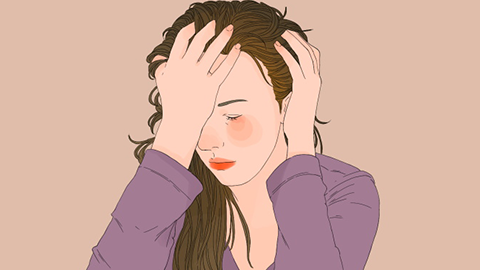How to relieve high psychological stress
Generally, high psychological stress may be caused by factors such as physical exhaustion, neurotransmitter imbalance, autonomic nervous system dysfunction, adjustment disorders, or bipolar affective disorder. It is recommended to seek medical attention promptly, identify the underlying cause, and then improve symptoms through lifestyle adjustments, medication, and other methods under a doctor's guidance. Specific analyses are as follows:

1. Physical exhaustion: Prolonged overwork leads to decreased bodily function and insufficient oxygen supply to the brain, intensifying the perception of psychological stress. It is important to plan work and rest time reasonably, ensure 1–2 hours of rest daily, avoid working continuously for more than 4 hours, and consider taking a nap at noon to restore energy.
2. Neurotransmitter imbalance: Stress can disrupt the secretion of serotonin and dopamine, reducing emotional regulation capacity. Engaging in aerobic exercises such as jogging or jump rope helps promote neurotransmitter release. Additionally, increase intake of amino acid-rich foods such as bananas and walnuts.
3. Autonomic nervous system dysfunction: Stress-induced overactivation of the sympathetic nervous system may lead to symptoms like dizziness and chest tightness, which in turn exacerbate stress. Follow medical advice to take medications such as vitamin B12 tablets, oryzanol tablets, or mecobalamin tablets, and combine with deep breathing exercises and meditation to regulate nervous system function.
4. Adjustment disorder: Psychological stress arises when individuals fail to adapt quickly to environmental changes or major life events, often accompanied by low mood. Patients should follow medical guidance to use medications such as paroxetine hydrochloride tablets, fluvoxamine maleate tablets, or venlafaxine hydrochloride sustained-release tablets, along with supportive psychotherapy.
5. Bipolar affective disorder: Feelings of depression intertwine with perceived stress, accompanied by reduced interest and loss of energy. Medications such as lamotrigine tablets, lithium carbonate sustained-release tablets, or quetiapine fumarate tablets should be taken as prescribed. In severe cases, electroconvulsive therapy may be used to rapidly improve emotional state.
In daily life, organizing living spaces and setting simple, achievable goals can enhance one’s sense of control and prevent excessive worry about events that have not yet occurred. Participating more in social activities reduces internalized stress during solitude, helping to build a healthy, multifaceted psychological regulation mechanism.









